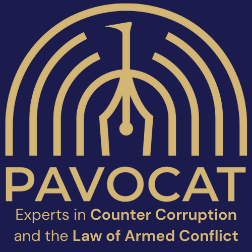Independent Schools Could Breach International Sanctions without Expert Advice says Leading Counter Corruption Consultancy

Sanctions designed to stop the flow of Russian money and assets through London could leave independent schools at risk of breaching those sanctions and open to prosecution if they are not provided with adequate guidance on how to navigate the current sanctions regime, while still meeting their duty of care to students. That’s the clear message from leading counter corruption consultancy Pavocat.
Professor Lee Marler, Co-founder and Director at Pavocat said, “The current sanctions regime is complex and could be misinterpreted by those organisations that don’t possess the specialist knowledge to navigate it. That could leave those organisations vulnerable to investigation and prosecution.”
In March 2022 the Independent Schools Council(ISC) advised independent schools that make up its membership not to take fees from Russian nationals. The ISC went on to warn its members that they may face legal issues if they did accept payments from individuals or entities that had been sanctioned by the UK Government.
Professor Lee Marler said, “The ISC has provided sound advice to its members. However, the nature of some individuals is such that they will disguise their identities and assets through the use of shell companies set up in the UK. With little investigative power or resources, Companies House is unlikely to identify and strike off such shell companies if they are acting outside the law. That means that despite their best efforts not to, independent schools could be accepting fees from sanctioned Russian individuals, banks or businesses.”
Schools must also consider the financial implications. There are approximately 2300 Russian children being educated in independent schools in the UK with fees averaging £44,000.The potential loss of revenue could be significant to schools.
The ISC reports in its 2022 census that 25,079 pupils have parents who live overseas. This represents 4.6% of the total population, but it is not clear how many foreign nationals domiciled in the UK send their children to fee paying schools.
Understanding, interpreting and navigating complex sanctions could prove to be a costly exercise for schools where specialist knowledge will be required to provide robust advice and develop suitable strategies to mitigate and manage the risks.
A collaborative approach to this challenge could work well for schools, where a collective could shoulder the financial burden rather than individual schools taking on their own experts and duplicating effort.
Prof. Lee Marler said, “If independent schools are to meet their obligations to the current sanctions regime, they require expert advice and guidance. A collective approach could deliver what schools require to maintain compliance and manage risk whilst sharing the financial burden between them.”






